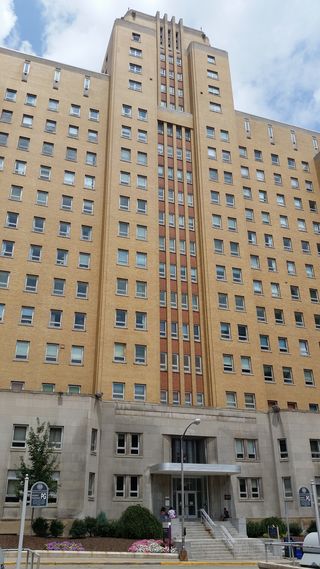Psychiatry
Remembering the Western Psych Shooting: A Need for Reform
The tragic Pittsburgh shooting reminds us of our broken mental health system.
Posted March 9, 2019
Yesterday marked the seventh anniversary of the tragic shooting at Western Psychiatric Institute and Clinic of the University of Pittsburgh Medical Center that left a therapist dead and four others injured. I was wrapping up my internship there on the schizophrenia unit at the time, though luckily I was away on a vacation on the day of the shooting. The shooter was a former patient at the hospital's outpatient clinic who had been exhibiting symptoms of psychotic disorder since at least 2005.

On the afternoon of March 8, 2012, John Shick walked into the lobby of Western Psychiatric with two loaded handguns and opened fire. Shick shot five people and killed one, a therapist named Michael Shaab. He was eventually shot and killed on scene by University of Pittsburgh police.
This tragedy reminds us of the urgent need for reform of America's mental health system and the very difficult situation imposed on doctors, family members, and others who care for the seriously mentally ill.
Although the mentally ill in general are no more prone to violence than the general population, those with serious mental disease are at an increased risk for violent and criminal behavior. An all-too-common scenario in modern psychiatry is the person who can clearly benefit from treatment but receives no help due to inadequate resources and/or too stringent commitment laws. As evidenced by the Western Psych shooting, this occasionally results in a major tragedy—one that could have been avoided had the person received proper psychiatric care, therapy, and housing.
The sad reality is that we have a system of mental health in the United States that overtreats the mildly ill/"worried well" and grossly undertreats the seriously and persistently ill. The reason for this is multifaceted and includes the underfunding of mental health care and resources by millions each year; a legal system which makes it far too difficult to commit persons truly in need of psychiatric treatment; a lack of inpatient beds and long-term hospitalization; and a gradual expansion of psychiatry that has focused more on treating the mildly ill and less on treating those with the most difficult problems.
We have gone from having 600,000 inpatient psychiatric beds in the U.S. in the 1950s to less than 35,000 at the present. The largest psychiatric institution in the country is the Los Angeles County jail. We now have 350,000 seriously mentally ill in prison and 250,000 homeless.
Sadly, the Western Psych shooting reminds us of the many changes needed to our broken system. The shooter had been treated at an outpatient clinic in Pittsburgh in the weeks and months prior to the shooting. The primary care physicians managing his care recognized the need for psychiatric hospitalization, but the patient slipped through the cracks. This led unnecessarily to a lost life and several life-threatening injuries.
What is needed is a system of mental health care in the United States that carefully balances civil liberties with the very real need for involuntary treatment of those most at risk. The clinical realities teach us that the sickest among us are receiving the least care and that society is paying the price.
For further reading, please see my article with Allen Frances, M.D., here on Psychiatric Times.


